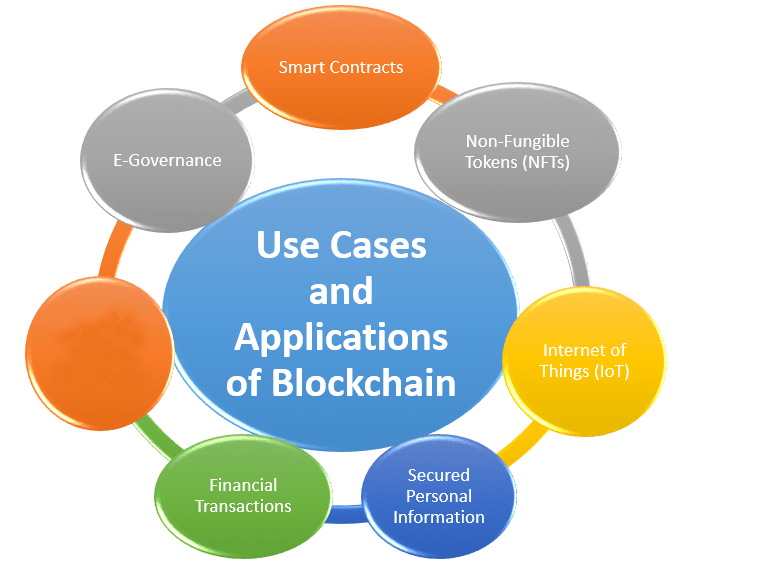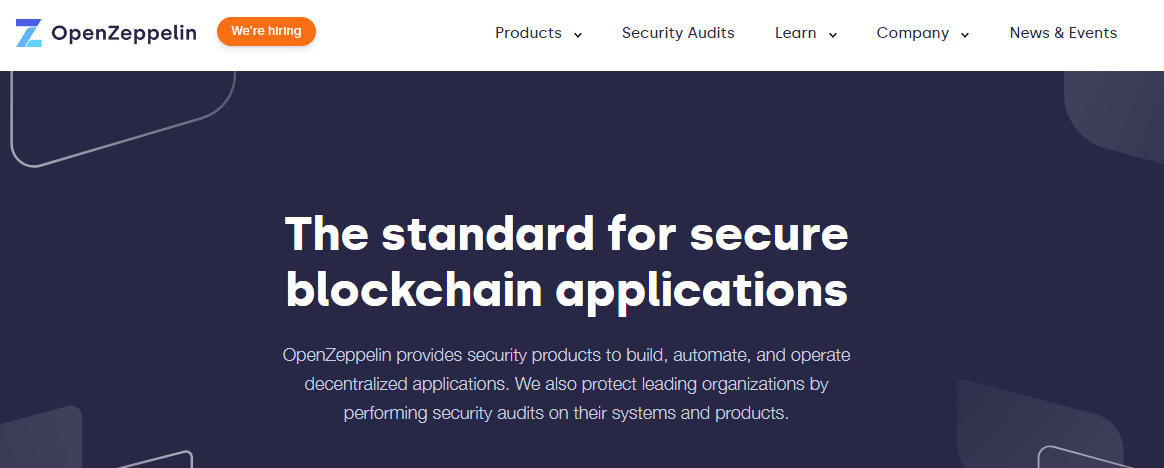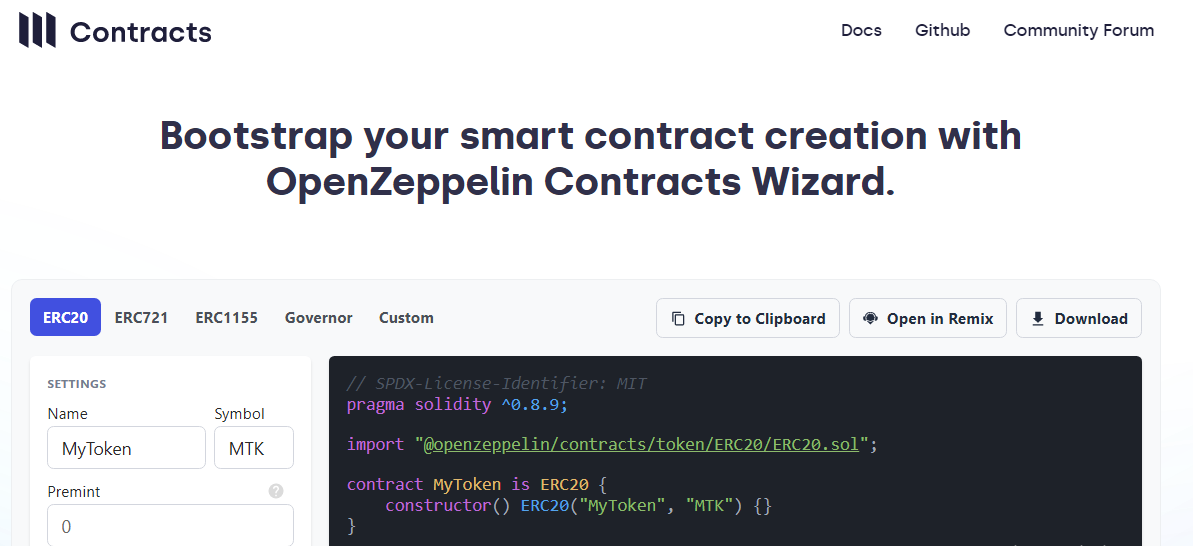The blockchain has numerous applications but is susceptible to security lapses. OpenZeppelin helps integrate a security audit into blockchain-based algorithms called smart contracts.
Blockchains are today being used by government as well as corporate agencies because of the security, integrity and privacy they offer. These security features are provided by decentralised applications and smart contracts. Important applications of blockchain include cryptocurrencies, non-fungible tokens (NFTs), financial transactions, logistics management, e-governance, and many others.
Transaction logs associated with blockchain-based applications are secure and have no scope for hacking. Each and every record in the blockchain is linked to dynamic cryptography, enabling all transactions to be encrypted, thus eliminating the risk of sniffing or hacking.
The distributed ledger in a blockchain is a digital asset that has been copied, synced, and shared across several devices and locations to prevent manipulation by third parties. For instance, a bank can offer a better level of security if it uses distributed ledger technology. The records of the transactions will be kept on one million devices if that bank has a million customers. So instead of just one server, the hacker will have to break into one million devices simultaneously. This is the main benefit of utilising decentralised blockchain technology.

If hackers gain access to a bank’s server using a centralised application, they can copy all the customer information and data. That is the primary factor driving the decentralisation of web-based applications by government organisations.
Decentralised applications can be used to safeguard government servers that host land registry records, citizens’ data (including Aadhaar in India), permanent account numbers (PAN), and so on.
Key application areas of the blockchain are:
- E-governance
- Banking and finance
- Stock market
- Insurance
- Internet of Things (IoT)
- Smart contracts
- Taxation
- Regulatory compliance and audit
- Voting/Polling/Elections
- Logistics management
- Cryptocurrencies and digital assets
- Non-fungible tokens (NFTs)
- Citizen identity management
- Money laundering protection
- Electronic health records
- Energy
Smart contracts and their implementation patterns
Smart contracts are blockchain-based algorithms that execute when certain criteria are met. They are often used to automate the implementation of an agreement so that all parties may be confident of the conclusion, without the need for an intermediary or any delay. They can automate action once certain criteria are satisfied. When predefined circumstances have been verified, a network of systems or nodes carries out the actions.
These contracts can be used for multiple applications including paying out money to the appropriate receiver, vehicle registration, sending out notices, or booking of tickets. When the transaction is finished, the blockchain is updated. As a result, the transaction cannot be modified, and only parties to whom permission has been granted can view the outcome.
A smart contract can include as many conditions as are required to reassure the participants that the activity will be carried out successfully. Participants must agree on the specific rules that govern those transactions, consider all potential exceptions, and design a framework for resolving disputes while setting the terms. Participants must also decide how transactions and their data are recorded on the blockchain.
A developer can then construct the smart contract. However, more and more businesses are using templates, web interfaces, and other online tools to make it easier to create smart contracts.

Need for secured smart contracts
Smart contracts enable trustworthy transactions and agreements to be made between dispersed, anonymous participants without the need for a centralised authority, a legal system, or an external enforcement mechanism.
The key advantages of using smart contracts are:
- Speed, efficiency and accuracy
- Trust and transparency
- Security
- Resource optimisation
Blockchain based smart contracts have the ability to automate various commercial operations, and have numerous applications. However, they also have limitations, such as scalability and security challenges. So decision-makers must balance the benefits against the disadvantages.
Blockchain smart contracts do not need private keys, which are generally required for business blockchain security. Instead, the private keys are controlled by the code that powers smart contracts, allowing data auditing by anonymous users. However, it is possible to further decentralise smart contracts such that they may accept a private key.
Blockchain-based smart contracts are computer programs that run only when certain criteria are met. They are typically used to execute contracts without the need for a third party, letting all parties know exactly what will happen without having to wait for a mediator. They can also automate a process by ensuring that one activity always follows another. And because they run on a decentralised network like blockchain, they are kept in a public database and cannot be changed.

Using OpenZeppelin for secured smart contracts
One of the basic advantages of using blockchain technology is security. However, smart contracts involve a lot of technical risk and unpredictability. Using OpenZeppelin, the security audit can be integrated into smart contracts. For creating safe smart contracts, OpenZeppelin provides open source OpenZeppelin Contracts written in Solidity. Tokens built on Ethereum and supported by OpenZeppelin Contracts adhere to ERC standards, and may be utilised in a variety of applications. OpenZeppelin Contracts are continuously reviewed and tested in an effort to reduce the cyber risk associated with developing safe decentralised applications on Ethereum or other blockchains.
OpenZeppelin is an open source platform for creating safe smart contracts. Hence, it offers a full range of security solutions and audit services to construct, administer, and examine every facet of software development and maintenance for decentralised applications. OpenZeppelin is maintaining this project with the intent of giving the ecosystem a safe and dependable library of smart contract components.
The MIT License, which restricts the responsibility of individuals who contribute to and maintain OpenZeppelin, and disclaims any guarantees with regard to the project, governs the use of OpenZeppelin Contracts.
As blockchain-based applications are a relatively new development, there are a number of privacy and resource optimisation-related problems that need to be resolved using secured smart contracts. Data replication to massive machines in blockchain technology and other decentralised applications does raise security and integrity concerns. The efficiency of blockchain-based solutions can be improved by creating and implementing sophisticated algorithms with the integration of smart contracts using OpenZeppelin. The blockchain does not totally address security challenges. Despite the primary emphasis on security, abuse has frequently been directed against blockchain-based initiatives like the DeFi (decentralized finance) protocols. This is where OpenZeppelin comes in. The security operations platform aims to deliver a true method for auditing smart contract codes for security risks.













































































